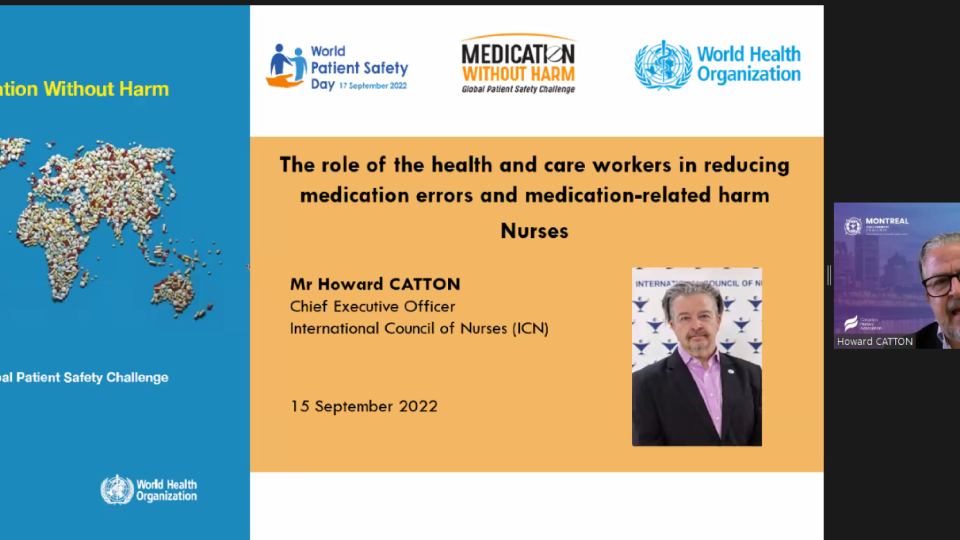Ahead of World Patient Safety Day ICN calls for ‘just culture’ in how drug errors are managed

The International Council of Nurses (ICN) welcomes the focus on medicines as the theme for this year’s World Health Organization World Patient Safety Day, but calls for a culture change in how health providers manage drug errors involving nurses and other health workers.
ICN Chief Executive Officer Howard Catton, speaking at WHO’s Medication Without Harm global virtual event ahead of World Patient Safety Day 17 September, said:
“The current blame culture around medicine errors made by nurses is the enemy of patient safety. We’re not talking about gross negligence but honest mistakes often linked to system failure in organisations. Neither are we seeking to exonerate nurses from their responsibilities but when errors happen, open reporting can lead to learning, not only for the individual concerned, but also for the organisation they work in. It is important to have a ‘just culture,’ rather than one in which there is an immediate move to impose sanctions, refer the nurse to the national nursing regulator and take disciplinary action.
‘What is required is shift from a criminalizing and a disciplinary mindset to communication and dialogue that will lead to learning and improvement and vitally improved patient safety.”
Mr Catton highlighted the recent case of RaDonda Vaught as an example of where a nurse has been the only person prosecuted despite evidence of a system failure and warned that over-stretched health systems, including nurse shortages were a breeding ground for human error.
“Nurses have vital responsibilities in the administration of medicines, but we know that they are working in environments where they are often overstretched, short staffed and too busy to be able to always give the high quality of care that they want to. We know that all these factors can lead to errors, including potentially serious medication errors. We cannot ignore the fact that the world is short of many millions of nurses, perhaps up to 13 million, nor that this fact alone has a very real impact on their everyday practice. And of course, medication safety is an example of the type of errors that can have very serious implications for the wellbeing of patients.”
Mr Catton also spoke about the advantages of nurses being given prescribing powers and called for regulatory bodies to remove barriers to nursing taking on prescribing as part of their normal duties.
“Nurses are increasingly able to prescribe medicines, which fits in with new, nurse-led models of care, and has proven to be safe and effective. And, combined with their other contributions to the correct administration of medicines, they are a vital component in any attempts to make patient safety a reality everywhere.”
Download the press release here